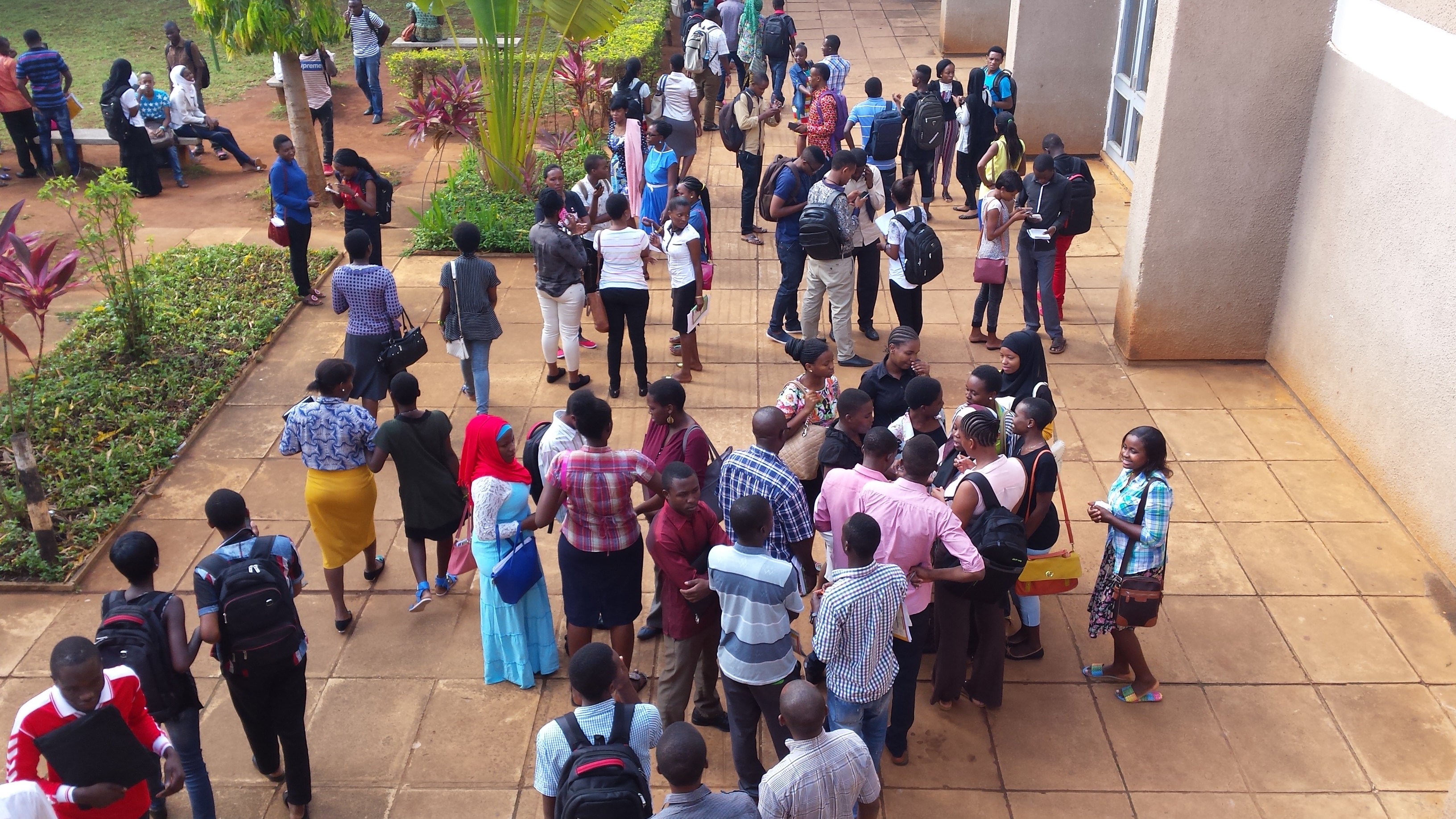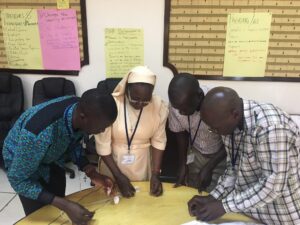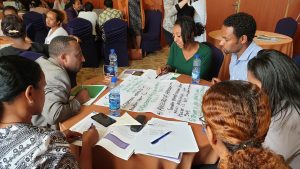
Transforming teaching and learning in East Africa
Young people have a vital role to play in development, and universities are important sites to nurture their skills and to harness that energy for social change (as I blogged about last week). But there is work to do to realize this potential.
In East Africa, the rapid growth of universities (there are now 45 universities in Uganda compared to just one university 50 years ago at Independence) and a huge expansion in student places – coming after many years of under-investment in infrastructure, learning resources and in academic staff – has had a serious impact on quality. In neighbouring Kenya, a recent audit by the Commission for University Education has revealed the extent of the problem.
The content of many courses is out of date, the styles of teaching reflect the ‘chalk and talk’ mode of lecturing, and in many institutions there are few incentives and rewards for investing in teaching when progression is determined by research papers, administrative loads are high, and campuses swell further each year.
It’s not surprising to find that student learning has drifted steadily away from the needs of employers and wider society as a result. But encouragingly many universities have recognized a need to overhaul their curricula and teaching practices, and there are a growing number of academics and university leaders seeking to turn things around.
Shaping a new partnership
Having identified this as a priority area in our new strategy, over the last few months we’ve been working with universities in Uganda, Tanzania and Kenya to explore how transformed teaching practices, and new ways of developing courses, could better prepare young people for their futures beyond campus.
It’s been an energizing time. Our colleagues — from Gulu University in Northern Uganda, Uganda Martyrs University (which has campuses across the country), the universities of Mzumbe and Dodoma in Tanzania, and AFELT , a Kenyan network of university teachers who aim to transform teaching practice and inspire and support others lecturers to do the same — all believe that they and their academic colleagues must shake up their teaching practice and overhaul their curricula.
We know that to do this, and to really prepare students for future roles in society and business, we need to take classroom teaching beyond their universities’ walls.
Colleagues from the LIWA Programme Trust helped us to understand how universities are perceived from a different side — by employers and enterprises who see that graduates can offer something new to their businesses, and are keen to work with universities to realize that. Since the graduate labour market is fairly small, we were also aware that we needed to think beyond formal routes to employment, to consider the role of graduates as creators of their own enterprises – commercial or social. Ashoka East Africa – the regional hub for the global network of social entrepreneurs – brought some particularly fresh thinking. Through its ‘changemaker’ approach, Ashoka supports and mentors young people to develop ventures that tackle pressing social needs, and in doing so help to create a richer learning experience.
Rethinking learning approaches
We’ve discussed new ways in which business and the public sector might be engaged in the development of courses and in providing meaningful learning experiences beyond the classroom, through placements and internships. We’ve thought about how opportunities to learn more about the needs of business might also be extended to lecturers themselves, to help them design more relevant courses, and to grow their own networks. We’ve also discussed how learning experiences can better equip students for work with local communities, including through the development of social ventures.
In several cases, our colleagues have already made strides down this road. At Gulu, for example, the faculty of agriculture wants to ensure that students understand the realities of local farming and develop skills and knowledge that can be useful. It engages local farmers in its teaching, and takes students out of the classroom to learn in the fields. At Mzumbe, a business incubator has already been established, which also serves the wider community – not just students.
Female students often face particular obstacles to their learning – discouraged from participating in classroom discussion, from pursuing particular subjects, and with relatively few female academics as both lecturers and role models. So it was particularly good to have our colleagues from Dodoma who have been pushing hard to address these issues within their own institution and who worked with us to develop a gender mainstreaming toolkit for higher education institutions to enable other universities to do the same. They and other members of the team made sure we didn’t overlook some of the critical but often neglected questions, such as whether curricula are gender-responsive, whether gender has been considered in university policy and practice, and how we identify female role models through our engagement with business and communities.
What skills and what kind of learning?
Something that we’ve spent a lot of time thinking about are the skills that students really need, and what kind of learning experience can help them to develop those skills. We’ve also recognized that skills are only part of the picture — attitudes and mind-sets matter too.
We need to test these further, in direct consultation with employers and communities, but we believe that the ability to solve problems and to apply a ‘critical thinking’ approach are probably particularly important. As one of the team put it, we need to stop teaching students what to think and instead teach them how to think.
We also believe that the ability to navigate professional relationships, negotiate with colleagues or suppliers or other partners, and to communicate effectively are likely to be particularly important. This tends to align with findings from recent studies, such as the British Council’s Universities, Employability and Inclusive Development project.
Changing the way we teach
Of course the challenge goes beyond identifying where courses need to be updated and critical skills fostered. At its heart, this is a partnership concerned with changing attitudes and behaviours. It’s easy to say that lecturers need to update their teaching practice, but we need to understand what enables – or frustrates – those changes to be made.
We also need to be realistic. Induction courses can help introduce some basic concepts, and provide some initial awareness-raising, but we need to find ways to support lecturers to explore new approaches and integrate these into their teaching ‘on the job’, which will require on-going mentoring and advice that is fitted to their already busy professional lives, not just a few training sessions.
Where to next?
We’re brimming with ideas, and we’ve got a fantastic, committed partnership ready to put them into practice. While change is already happening, we see a real opportunity to bring about greater, more transformative change if we work together, rather than continue to push alone.
We now hope we can secure some funding to take the next step, because, while we aren’t talking about major investments in facilities or materials, we know we do need to dedicate serious time to achieve change — and this means freeing up time that is currently committed to other areas of university teaching and administration. And we’ll need to be able to come together, and bring others together, regularly as we go.

 Previous Post
Previous Post Next Post
Next Post

